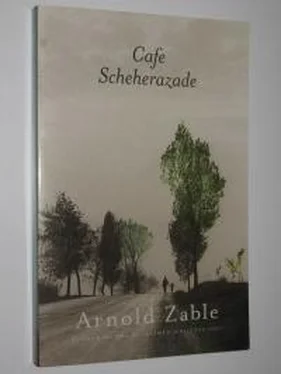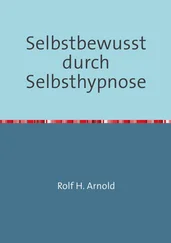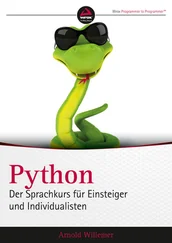Arnold Zable - Cafe Scheherazade
Здесь есть возможность читать онлайн «Arnold Zable - Cafe Scheherazade» весь текст электронной книги совершенно бесплатно (целиком полную версию без сокращений). В некоторых случаях можно слушать аудио, скачать через торрент в формате fb2 и присутствует краткое содержание. Город: Melbourne, Год выпуска: 2001, Издательство: Text Publishing Company, Жанр: Проза, на английском языке. Описание произведения, (предисловие) а так же отзывы посетителей доступны на портале библиотеки ЛибКат.
- Название:Cafe Scheherazade
- Автор:
- Издательство:Text Publishing Company
- Жанр:
- Год:2001
- Город:Melbourne
- ISBN:нет данных
- Рейтинг книги:4 / 5. Голосов: 1
-
Избранное:Добавить в избранное
- Отзывы:
-
Ваша оценка:
- 80
- 1
- 2
- 3
- 4
- 5
Cafe Scheherazade: краткое содержание, описание и аннотация
Предлагаем к чтению аннотацию, описание, краткое содержание или предисловие (зависит от того, что написал сам автор книги «Cafe Scheherazade»). Если вы не нашли необходимую информацию о книге — напишите в комментариях, мы постараемся отыскать её.
Cafe Scheherazade — читать онлайн бесплатно полную книгу (весь текст) целиком
Ниже представлен текст книги, разбитый по страницам. Система сохранения места последней прочитанной страницы, позволяет с удобством читать онлайн бесплатно книгу «Cafe Scheherazade», без необходимости каждый раз заново искать на чём Вы остановились. Поставьте закладку, и сможете в любой момент перейти на страницу, на которой закончили чтение.
Интервал:
Закладка:
Springtime, take away my sadness, Restore my dear one to me again.
Oh springtime, take away my sadness, Convey my sweetheart back to me again.
His name is Shmerl Katcherginsky. Or Shmerke as he is affectionately known. His songs mirror the feelings of his people, his fellow inmates. They recite his poems, they whisper his songs and, for a brief moment, they are comforted:
Hush, be silent, remain silent, Corpses are growing here.
They were sown by men of evil, Raised from seeds of fear.
There are paths to Ponary, But none that lead away.
Oh, our father has been lost, Our loved ones wrapped in clay.
Hush my child, weep not my love, Our cry will not be heard;
Quiet my child, sleep my treasure
Your tears, they fall in vain.
Only when our freedom returns
Will its light wash away your pain.
165 The end looms in the Jerusalem of Lithuania, yet there are those who bear children, a crime punishable by death. Basia gives birth to her second child in a concealed room within the ghetto hospital. She names her Nehamiah, the Hebrew word for `hope`. She retreats to the windowless room in which she lives with Etta and
Avram, her husband Uri, and little Shmulek.
Nehamiah is not yet four months old when, on 5 July 1943, Yitzkhak Wittenberg is arrested. As he is being led from the ghetto, those guarding him are attacked and killed. The Gestapo issues an ultimatum: if Wittenberg does not surrender by morning, the ghetto will be liquidated.
After an agonising night, Wittenberg complies. Several units of ghetto fighters decide to make a run for the forest. They are ambushed en route. Many die in the subsequent battle. In reprisal the Nazis murder the families and workmates of the escapees.
On 1 September 1943, the ghetto is sealed off. In the following weeks thousands are herded towards the Vilna station. Those still capable of work are transported to labour camps: the men to
Estonia, the women to Latvia. The old, the sick, the lame, the remaining women and children, all those deemed not fit for slave labour, are trucked out to be shot in Ponary, or entrained to the gas chambers of Majdanek. The final liquidation of Vilna ghetto has begun.
Avram and his comrades retreat to a courtyard beside the ghetto library on Strashuna Street. Its precious collection of books is torn from the shelves and thrown onto the barricades, alongside pieces of metal, furniture, bedding and bricks. After 166 the initial shoot-out the Nazis retreat; but the deportations continue.
The decision is finally made by the partisan command. The ghetto fighters are to steal out to the forests. An uprising within the ghetto walls would be of no avail. Better to continue the resistance underground.
In the early hours of 23 September, Avram and his comrades leave the library, and descend into Strashuna Street. At first light
Avram comes across his mother, by chance. He has not seen her for six weeks. She is hurrying by with Basia who holds baby Nehamiah in her arms. Little Shmulek clutches her other hand.
"She knew it was the end," says Avram. "I gave her some bread and milk for the baby, and she gave me the scarf she was wearing. She wanted me to be warm. "Take care of yourself in the forest," she told me. Those were her final words."
It would remain the most indelible image, the sight of his family vanishing through the smoke and rubble, in the first light of day. It continues to haunt Avram, this final glimpse of Basia, Shmulek, baby Nehamiah, and his mother, the lifelong revolutionary, moving away to certain death. His mother's words still pursue him. The memory will follow him to the grave.
Avram leans back against his chain His coffee has turned cold.
His feet are drawn up to the side. His face is tense, the colour drained. He is like a child cowering, withdrawing into himself.
"Have I told you this story?" he asks.
167
"In the ghetto there was a yeshiva for young boys. The head of the yeshiva was a cabbalist, a student of Jewish mysticism, a numerologist who believed that the universe had a mathematical perfection. He had an uncanny ability to use his knowledge of numbers to make accurate predictions. Even in the ghetto, he would immerse himself in the Zohar, the Book of Radiance, the great text of the cabbalists. He loved his God and worshipped him day and night; and he loved his boys as much as he loved his God.
"In the final days of the liquidation the boys were flushed from the cellar in which they were hiding, and driven out to Ponary.
When he discovered his students` fate, the rosh yeshiva lost his mind. He ran through the streets of the ghetto screaming: "Yidn, there is no God. Do not believe it. No God would allow this to happen. Yidn, it is a lie. There cannot be a God!"
"We could hear his screams from our barricades. "Yidn, they have murdered my boys. Yidn, there is no God. No God would allow this to happen!" For hours he ran, screaming the same words, like a man possessed; he did not stop screaming until he too was shot."
Avram pauses. His knees are bent back, held tight. He leans to the side and clutches his chain His face is white, his body contorted. Around us the hum of conversation continues. It is as if our table has been cordoned off.
When Avram's voice returns, it arises as a whisper. Like a child awoken from a disturbing dream, he asks, "Now tell me, 168 how can anyone emerge from such a place without rage? Tell me, how could anyone emerge from all this and remain sane?"
The city is burning. The ancient walls are crumbling. The air is rent with the barking of dogs, the moans of the wounded. Avram and his comrades enter the sewers. He clutches a 14mm Colt revolver and four bullets, his ration of firepower. Urine drips from the walls. The tunnels narrow to half a metre in width. A comrade faints at the smell of stale air and shit.
From the distance can be heard the sound of shots. The tunnel reverberates with the aftershock. Five partisans who had preceded them have been discovered. They are dragged out and hanged in
Subosz Square, in front of a crowd of ghetto inmates.
Among the executed are Avram's close friends, Abraham Cwornik and
Ashia Bik. That morning Avram had come across them making love on the floor of the barricaded library. They lay on a bed of books, and sought to enter each other, oblivious to their surroundings.
He was in his forties. She was twenty-one. They made love in the morning, and they were hanged in the afternoon, side by side.
Avram and his comrades emerged from the sewers at night. They were met by contacts who guided them to a fur factory. Two days later they were transferred from the factory to Gestapo headquarters on Slovacki Street.
169
It was an audacious move. The Lithuanian concierge hid them in the attic. They remained there for three nights, awaiting their contacts in the forests. Below them they heard the voices and movements of Gestapo officers. They were in the belly of the beast.
"Fear is a feeling one has when there are choices," says Avram.
"We had no choice. We wanted to survive. Perhaps this is what is called the preservation instinct. Fear is paralysing.
"Only years later did I feel it again, here, in Melbourne, when my son contracted polio. Until then I had remained immune to fear. All I felt was the desire for revenge, fuelled by a rage I found impossible to tame. But when I had children, a family of my own, and I saw the agony of my own son, I began to feel afraid. I wanted him to be well. I did not want to see him suffer."
As he talks I see in him the nineteen-year-old youth, emerging from the sewers, hiding in Gestapo headquarters, stealing out to the forests. I see the ghetto fighter. I sense the residual anger. And I am struck by the contrast: between Avram's tales, and the setting in which he tells them; between the images of old
Читать дальшеИнтервал:
Закладка:
Похожие книги на «Cafe Scheherazade»
Представляем Вашему вниманию похожие книги на «Cafe Scheherazade» списком для выбора. Мы отобрали схожую по названию и смыслу литературу в надежде предоставить читателям больше вариантов отыскать новые, интересные, ещё непрочитанные произведения.
Обсуждение, отзывы о книге «Cafe Scheherazade» и просто собственные мнения читателей. Оставьте ваши комментарии, напишите, что Вы думаете о произведении, его смысле или главных героях. Укажите что конкретно понравилось, а что нет, и почему Вы так считаете.












